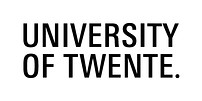Inclusive Society
This line of research focuses on the sustainable employability of people with vulnerable labour market positions. We explore the potential of technology to harness the talents of people who are too often marginalised. This line of research is a joint project between Saxion University of Applied Sciences and the Verwey-Jonker Institute; it is led by Professor Ines Schell-Kiehl and Associate Professor Sjoerd de Vries.
In this line of research we utilise a systemic approach: we map the potential for change in the whole 'system', assuming that not only the employee but also the labour market needs to adapt to the employee's skills. Based on this perspective, we are working towards improved socio-technological support for employees, their access to decent work and sustainable employability in the (regional) labour market.
L.INT Programme inclusive work and technology
Saxion and Verweij Jonker have jointly set up a strategic research programme (“L.INT”) with three spearheads:
- Insight into how, where, by whom and for whom inclusive technology can best be deployed so that (more) people in a vulnerable position can participate sustainably in the (regional) labour market;
- Further development of (existing) inclusive technological interventions for retaining people in a vulnerable position for the (regional) labour market, adapting work processes and promoting the acceptance of inclusive technological solutions by employees, employers and customers.
- Development of inclusive technology interventions for implementation, embedding and scaling up.
Main themes
Inclusive technologies are people-centred social and technology solutions for an inclusive labour market such as operator support systems and work instructions via augmented reality. Many technological applications are developed in and around the workplace. But they are often not adapted to people who are currently marginalised, such as people with disabilities, people with low levels of education, or newcomers with employment rights. In our research, we collaborate with these people and employers to design and implement suitable solutions. For example, the use of virtual reality to provide an accessible way to find a new job, cognitive support systems to enable people to perform complex work processes independently despite an intellectual disability, but also speech recognition for people with a language barrier.
We are also investigating the use of technological interventions for employers, professionals and intermediaries, such as virtual support for vulnerable employees.
Increasing attention is being paid to vulnerable people in the labour market and there is a shift towards a perspective that aims to achieve equality and social justice. This has led to a debate on tackling prejudice and exclusion and harnessing the strengths and talents of people who have had little or no access to decent work.
Employers need appropriate and structural practical support in hiring/matching people and sustainably retaining vulnerable employees. In our projects we look at the work capacity of (potential) employees and how we can develop concrete approaches and tools to make the inclusive labour market a reality.
We adopt a people-centred design approach to research. If we are to create decent work and make it accessible to all, we must adapt work to people's individual abilities, differences and needs. The focus should be on solving the underlying problem, not the symptoms. When designing solutions, the people who (might) use the solution should also have their say. We do this by using methods such as co-design, where solutions are worked on in rapid iterations and prototyping.
Our projects
-
ZonMW: more people with disabilities work in the circular industry with Cognitive Support Technology (CST). Learning and innovating together in three pilots and learning networks. With this project we provide insight into how, where and for whom CST can be used to lower the thresholds for complex work (TNO is the lead partner).
-
Tech for inclusion (CTI): in this project we have developed, implemented and evaluated career guidance films in Virtual Reality (VR) with and for people with characteristics of ASD and anxiety who experience barriers to job orientation and finding work.
-
ZonMw 1.5 metre social distancing restrictions: we conducted a study into the impact of the corona restrictions on people who are partially sighted and completely blind. A video-based approach has been developed to make online meetings inclusive. A training course in non-violent communication has also been developed. We are working on the distribution and implementation of these tools.
-
TINT: The Technohub Inclusive Technology is a place where employers, employees, educational and knowledge institutions work together to expand the use of inclusive technology so that decent work becomes and remains accessible to everyone. We are investigating the factors that make this technology successful.
Collaboration?
Do you have a question or an idea for a research project? Please contact us:


dr. Sjoerd de Vries
Associate lector Sustainable Work Design
06 - 2281 4343 [email protected] LinkedIn











